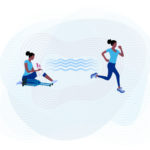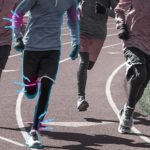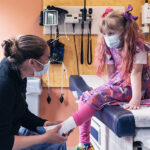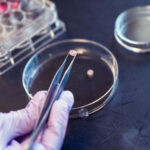After two ACL tears, a skier reconnects with her body and her sport
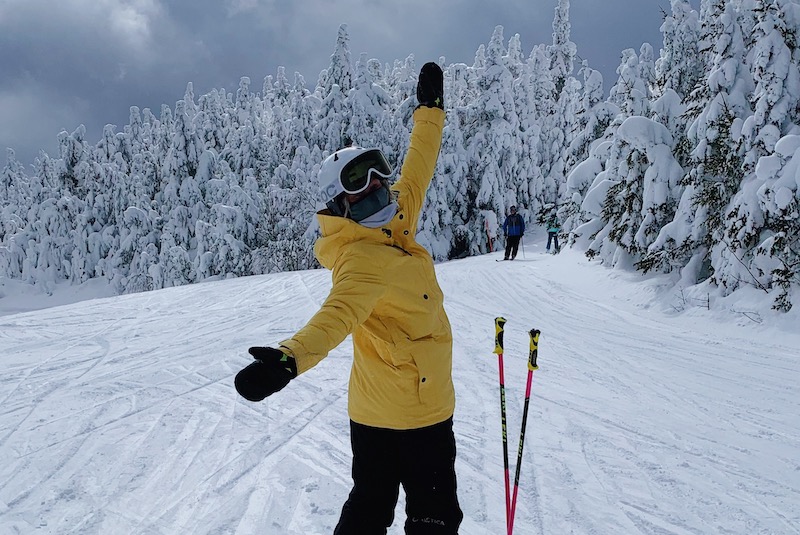
The memory remains vivid in Sophia’s mind. Racing down a slalom course at top speed, she hit a patch of bad snow. “The next thing I knew, I was launched up in the air. My legs were above me and I lost sight of my right leg. I felt my right knee twist and I heard a pop.” Sophia Carellas tore her ACL (anterior cruciate ligament) for the first time when she was 16.
A few weeks later, she and her parents met with a surgeon near their home in Springfield, Massachusetts. The meeting left Sophia unhappy and anxious. “I was a high school sophomore, and the surgeon was talking about my injury in clinical terms that I didn’t understand,” she recalls. Her father looked into other options and a short time later, they met with Dr. Martha Murray of the Orthopedic Center, now orthopedic surgeon-in-chief, at Boston Children’s Hospital.
“Dr. Murray was so different. She treated me like a human being. I felt more respected and more seen at Boston Children’s.”
The complicated psychology of skiing after an ACL tear
Sophia underwent ACL reconstruction surgery and worked hard to recapture the fearlessness with which she’d skied before the injury. Two years later, she joined her college ski team. Despite her dedicated training and physical strength, memories of the accident sapped her confidence. “I was never not thinking about my injury,” she says.
Early in her first college season, Sophia hit another patch of bad snow and tore her ACL for a second time. As the realization sunk in that her worst fear had come true, she was overcome by fear, anger, self-doubt, and sorrow. “It was very emotional. I kept asking myself, ‘Why did I do this to myself again?’”
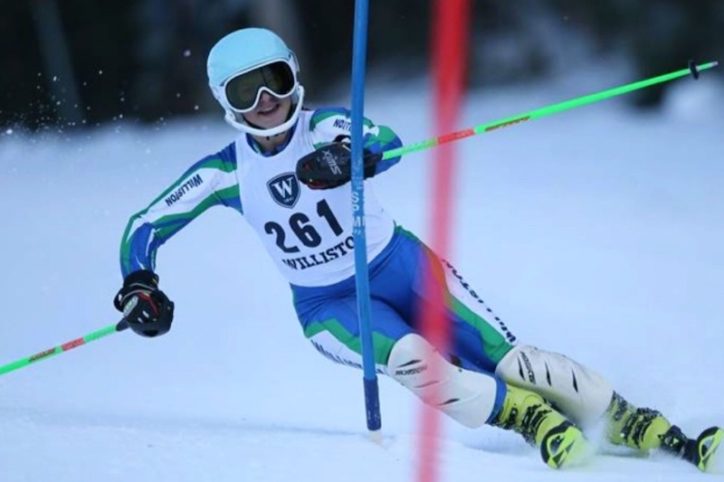
A second knee surgery and a new set of mental skills
At Boston Children’s, Sophia met with Dr. Melissa Christino, a sports medicine surgeon who had trained under Dr. Murray. “She played sports in college and knew exactly where I was coming from,” says Sophia. Dr. Christino also happened to be leading an initiative to study the relationship between athletes’ physical and emotional recovery from injury.
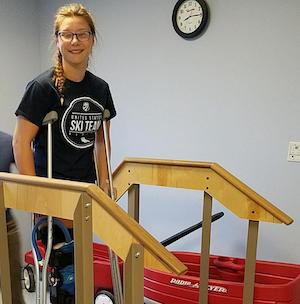
“Sports injuries can be a traumatic, life-altering events for athletes who identify strongly with their sport,” she says. “Being told they have to take time off from their sport can be paralyzing. But by paying attention to the whole athlete, we can help many come out of the experience with greater self-esteem and self-efficacy.”
Dr. Christino operated on Sophia’s knee twice. Shortly after the injury, she repaired Sophia’s meniscus and improved the bone quality in preparation for a revision reconstruction. Ten weeks later, she reconstructed Sophia’s ACL for the second time. During this time, she and Sophia talked about the emotional side of her recovery.
“We talked about how, after an injury like mine, you have to literally train your mind to reconnect with your body,” recalls Sophia. She was on crutches. The leg that had once carried her down runs at high speed now felt like a suitcase that she had to lug from place to place. “I was strong and fit before these injuries. Having surgery, it was a blow to my pride. I had to learn to have faith in my body again.”
The hard-won wisdom of ACL tear and recovery
Looking back, Sophia considers her injuries the best and worst things to have happened to her. “I feel such a loss for what I had. I spent so long trying to get back to the person I was when I was 16 and had no fear. Now I realize I’ll never be that person again, but I think I’m a better person. I’m listening to my body, and I’ve learned to set healthy boundaries. If it’s a bad snow day, I can tell the coach I’m not going to go out in it.”
Sophia skied more than 400 miles last winter, when COVID-19 forced her team to take a season-long pause. Time on her skis without the pressure of competition gave her a chance to fall back in love with the sport. She might race again this year, or she might not. What matters most to her now is taking care of herself so she can continue to ski well into the future.
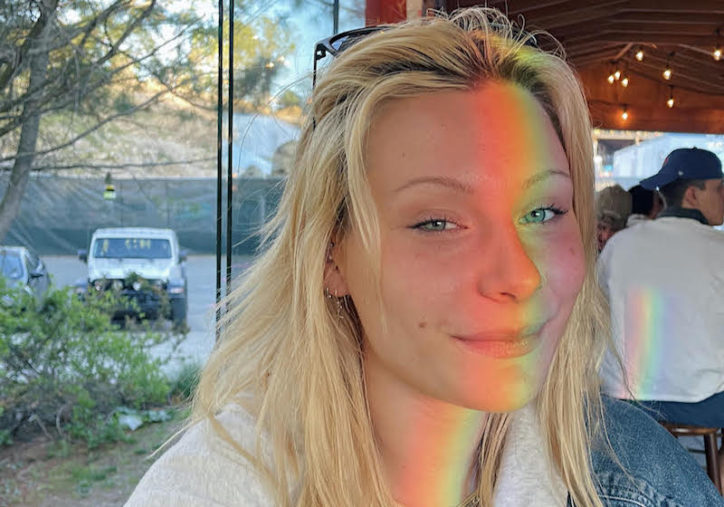
Learn more about the Orthopedic Center, Sports Medicine Division, and ACL Program.
Related Posts :
-

Not just a physical thing: The psychology of sports injuries and recovery
“Nobody plays sports expecting to get injured, but unfortunately, injuries are part of sports,” says Melissa Christino, MD. As a ...
-

Sports injuries: Why ignoring pain is bad for athletes
“No guts, no glory.” “No pain, no gain.” “Rub some dirt in it.” Sports clichés like these encourage young ...
-

Questions to ask about your child’s orthopedic care
Maybe your child has an orthopedic injury and needs surgery, or maybe they need to be treated with a different ...
-

Engineered cartilage could turn the tide for patients with osteoarthritis
About one in seven adults live with degenerative joint disease, also known as osteoarthritis (OA). In recent years, as anterior ...


